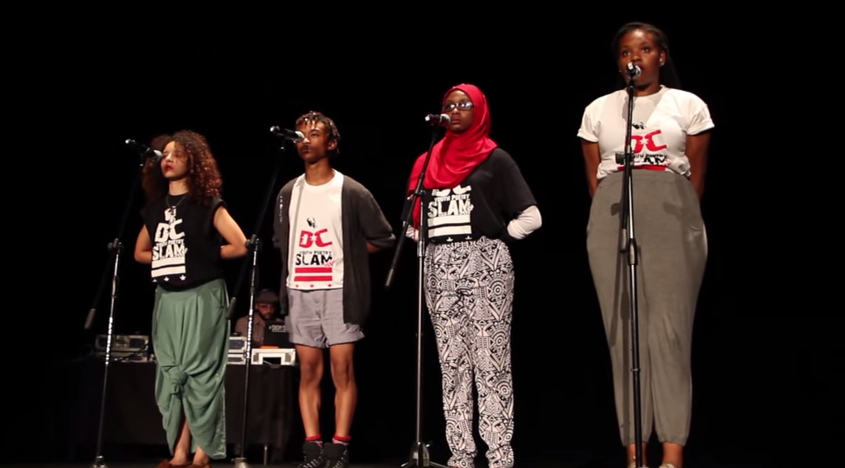The Third Anniversary of the March Against Rape Culture
Photographs by Tessa Elbettar
Hundreds gathered in Daley Plaza for Chicago’s third annual SlutWalk protest march on Saturday, September 7th. Created in Toronto, Canada in April 2011, SlutWalk marches have since spread worldwide, fighting to end rape culture, body shaming, and victim blaming. Protestors, both women and men, attend the event and dress their sluttiest, combatting the idea that how a woman dresses is an excuse or invitation to rapists.
The crowd was young and the atmosphere was energetic. Pussy Riot blared over loudspeakers as the march began. Demonstrators held signs bearing anti-rape messages such as, “Survivors Are My Superheroes” and “Yes means fuck me, no means fuck you!” Many women marched topless, wearing only bras. Some of them had words written across their bodies, spelling out “slut” or “still not asking for it.”
In the wake of the high profile Steubenville and Rehtaeh Parsons rape cases, coupled with the ongoing War on Women, SlutWalk is as relevant as ever. The Walk opened with a rally where rape survivors and allies of survivors gave moving and eloquent speeches. Erica Cribb, the first to speak, delivered a deeply personal speech in which she recounted her own sexual assault experience. “Ironically”, said Cribb, standing on the Picasso, addressing a rapt and supportive audience, “living through that experience was one of the most empowering experiences of my life[…]I had a far greater mission to fuel the fire of my existence. I don’t call myself a victim, I’m a survivor, and so are you. Use that adversity to fuel your fire, your passion. Spit in the face of your rapist, your abuser.”
The protesters that congregated at the base of the Picasso shared a similar sense of determination to turn the tide against a culture that perpetuates sexual violence and the idea it is permissible.
“We are in a society of victim blaming,” said Kelly Hayes, a survivor, supporter, and member and promoter of feminist vigilante gangs. “We live in a world where every day we are second-guessing every aspect of ourselves. That repression is rooted in a lot of things. It is rooted in capitalism, it’s rooted in the way the mainstream media markets these ideas, the way everything is marketed to us.”
According to Hayes, SlutWalk is an opportunity to undermine that culture of repression to create a new atmosphere of learning and liberation where women can come together and celebrate themselves and their bodies. “We are of no profit to the system unless we are constantly self-critiquing,” Hayes continued. “But here, we come together and form a moment of knowledge. All these forms of oppression, and specifically, the most obvious, sexual oppression, is not our fault and we have the right to express ourselves in any way without it being interpreted by the patriarchal society as an invitation or as an excuse.”
Alex Forni, a student from Northern Illinois University in DeKalb, stated, “I think SlutWalk is an important march not only to raise awareness of the issues that face women on all levels regarding sexual assault […] but also to network with other people who have the same interests and create a bigger network to fight for the cause.”
Forni is a member of PACT 5, an organization dedicated to end rape and other forms of sexual violence on college campuses.
“We need to stop the way we talk about rape culture,” says Forni. “It’s not a joke. And, people that are victimized, they’re not victims, they are survivors. The way we talk about rape needs to change in order to change what rape culture is.”
Forni also stressed that it is important to remember that rape can happen to anyone, regardless of gender. However, though not every single rapist is a man, according to the United States Bureau of Statistics, 99% of rapists are male.
“The key is,” said Adam, a SlutWalk participant. “you have to speak to men. They are obviously the ones perpetrating [rape] and they’re the ones with the problem. You gotta gear your message towards men and changing men’s minds and changing masculine culture.”
“In terms of what men need to do,” said Kelly Hayes, “Allies need to get real about being allies because that it not something I see happening out there. You have men who talk about being enlightened, men who talk about how much they hate misogyny, but do they call their bros out when they make jokes they shouldn’t be making? Do they stand by the women in their communities when they speak up?”
Hayes and other demonstrators argue men need to stand alongside women and condemn sexist behavior for more widespread change to occur. “Until you have one [man] who is brave enough to stand alongside a woman and say ‘shame on you all, shame on you all, this should not be allowed,’ then folks start falling in line,” continued Hayes. “More people need to be more willing to be that first person to step up.”
SlutWalk and similar events are crucial in that they will hopefully prompt both men and women to stand up together and fight sexism and misogyny wherever those problems are manifested. SlutWalk is built on the coming together of women, men, survivors, and supporters who are determined to create real societal change. SlutWalk Chicago’s 3rd anniversary was a success with a large and enthusiastic turnout. The coming years will hopefully continue to produce larger crowds to further educate all on the desperate need to combat rape culture.






